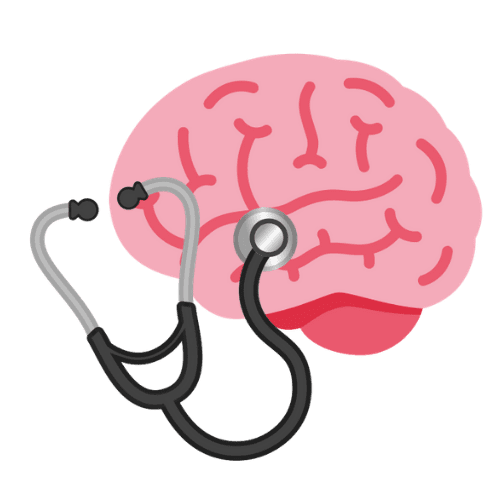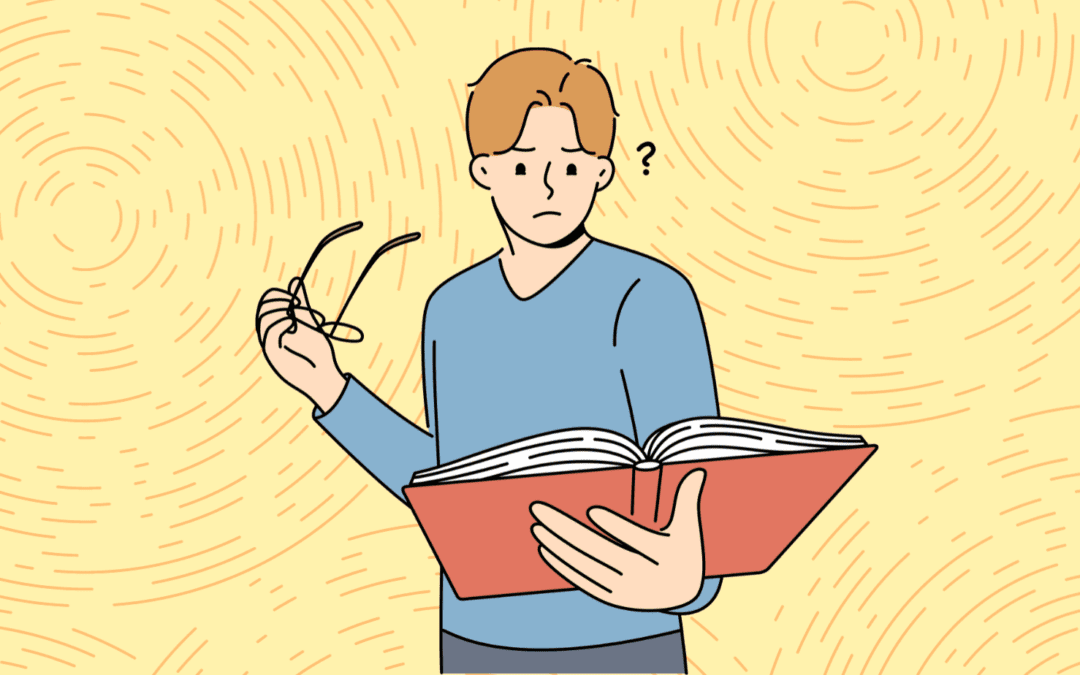Are ADHD and dyslexia related?
Dyslexia, like ADHD, is a Specific Learning Difference (SpLD).
DYSLEXIA: A general term for disorders that involve difficulty in learning to read or interpret words, letters, and other symbols, but that do not affect general intelligence.
Oxford Dictionary
Dyslexic people have problems processing written and spoken words. It most often affects your ability to read.
The USA’s Centers for Disease Control and Prevention (CDC) reports that close to 50% of children with ADHD also have another SpLD. Although ADHD and dyslexia are different SpLDs, they do often overlap. Among all common comorbidities, ADHD is the most frequently associated with dyslexia.
Some research suggests that 25% of children with ADHD also have dyslexia. Up to 40% of children with dyslexia have an additional diagnosis of ADHD.
However, having ADHD doesn’t necessarily mean you will develop dyslexia, or the other way around!
So what are the similarities between ADHD and dyslexia?
Both conditions can be inherited.
ADHD and dyslexia both run in families.
The exact genetic basis of each condition hasn’t yet been identified, as there are many factors contributing to their development.
However, the heritability for ADHD and dyslexia have been estimated at 80% and 60% respectively. This means that if one of your parents has ADHD, or is dyslexic, you’re very likely to have the condition as well.
Additionally, some genetic overlaps between the two disorders have been found. This might explain why so many children have been diagnosed with both ADHD and dyslexia.
They have shared neurological features.
If you have dyslexia or ADHD, the way your brain works is different to those without either disorder. Brain imaging has shown that the brains of people with ADHD or dyslexia have slight differences in structure and functioning, in comparison to those without SpLDs.
Some studies have suggested that there is a shared biological process underlying ADHD and dyslexia. This may explain the prevalent co-existence of the disorders.
They share some risk factors.
ADHD and dyslexia share several risk factors.
- Exposure to alcohol and cigarettes as a foetus
If your mother smoked or drank alcohol while she was pregnant with you, your chances of having ADHD or dyslexia are increased. This is likely due to the interaction of the chemicals with the genes that increase your risk of developing an SpLD. However, the mechanism has not been fully outlined yet. After all, genes are your body’s instructions for how to develop.
- A low birth weight
Being born underweight or premature also increases your chances of having ADHD or dyslexia. Again, this is likely due to the effect of having a low weight on your genes.
Certain differences in brain structure and chemical functioning have been associated with SpLDs, and these differences may not always be present at birth. Brain damage through illness or injury can additionally lead to symptoms of ADHD and dyslexia.
Reading difficulties in ADHD and dyslexia.
Reading fluency means you can read aloud with accuracy, speed, and expression.
Poor fluency can be a symptom of both ADHD and dyslexia, but reading difficulties usually manifest in different ways.
ADHD and dyslexia can both slow your reading speed, but typically people with ADHD will read words accurately. However, they may not necessarily be a fluent reader, as a faster-than-normal ADHD brain can cause you to lose your place or skip parts.
In contrast, dyslexics will skip over punctuation or make errors sounding out words, and are more likely to read slowly.
Writing difficulties.
Both ADHD and dyslexia can make it hard to organise your thoughts on paper.
If you’re dyslexic, you might have additional difficulties with spelling – this usually isn’t a problem if you have ADHD alone.
ADHD and dyslexia can both make it hard for you to write neatly. They can also give you problems proofreading, so you don’t effectively check for errors in your work.
Attention difficulties.
When you have dyslexia, reading accurately can take so much effort and energy that you can’t concentrate for very long. You become too tired to do it.
It might also be hard to concentrate on reading if you have ADHD – it is a disorder of attentiveness, after all! It’s easy for you to get distracted, or zone out, when you’re trying to read. It isn’t because you run out of energy to concentrate. Rather, your brain has too much energy to just focus on one thing.
How can I tell the difference between ADHD and dyslexia?
ADHD and dyslexia can sometimes be differentiated by the setting they present in. Dyslexia usually causes problems while reading and writing, whereas the symptoms of ADHD are more pervasive. They appear in most areas of life, and can also often be misconstrued as a behavioural problem.
However, a qualified medical professional or educational psychologist is the best person to make an assessment, and identify the source of any difficulties you may be experiencing.
You can learn more about the symptoms of ADHD in our Symptom Spotlight series.
A final note…
Always remember – ADHD and dyslexia are never a reflection of your intelligence. They just affect how easy it is for you to achieve your full potential. People with ADHD and dyslexia actually tend to have normal or above-average levels of intelligence.
There are strategies that can help you with the problems presented by both disorders. No SpLD should ever preclude you from succeeding in life.
In fact, getting so far with either condition is a massive success in itself, and something you should be incredibly proud of.


I’d put good money on dyslexics without ADHD being dyslexics with undiagnosed ADHD…